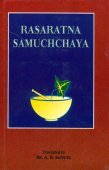Aam: 2 definitions
Introduction:
Aam means something in the history of ancient India, Hindi. If you want to know the exact meaning, history, etymology or English translation of this term then check out the descriptions on this page. Add your comment or reference to a book if you want to contribute to this summary article.
Images (photo gallery)
(+105 more images available)
India history and geography
Source: Shodhganga: Deforestation in Nagaland: a historical perspectiveAam is the name of a plant corresponding to Mangifera indica, according to the author Lanukumla Ao in his thesis “Deforestation in Nagaland”, mentioning the source: Annual Administrative Report 2012-2013.

The history of India traces the identification of countries, villages, towns and other regions of India, as well as mythology, zoology, royal dynasties, rulers, tribes, local festivities and traditions and regional languages. Ancient India enjoyed religious freedom and encourages the path of Dharma, a concept common to Buddhism, Hinduism, and Jainism.
Languages of India and abroad
Hindi dictionary
Source: DDSA: A practical Hindi-English dictionaryAam in Hindi refers in English to:—(nf) a mango; (a) common; general; —[adami] the common man;—[khane se kama rakhana, peda ginane se nahim] to be concerned with the substance rather than the source; —[jalasa] a public meeting; ~[phahama] current; common;—[rasa] mango juice;—[raya] popular opinion, public opinion;—[ke ama guthaliyom ke dama] earth’s joys and heaven’s combined..—aam (आम) is alternatively transliterated as Āma.
...
See also (Relevant definitions)
Starts with (+83): Aama, Aamad, Aamada, Aamalki, Aaman, Aamana, Aamantraneey, Aamaradaavalli, Aamari, Aamatee, Aamba, Aamba, Aambalangw, Aambeibos, Aambeiebos, Aambo, Aambotee, Aambu, Aamcha, Aami.
Ends with (+98): Aiyavittulam, Am, Amam, Araiyinam, Aram, Ashtakiram, Atam, Baam, Badnaam, Bangaali baadaam, Bhansaar-godaam, Calam, Cappalam, Carvatumpalainam, Cekkupantiyinam, Cempatam, Chaam, Chettamuun naam, Cikkiram, Culaippitam.
Full-text (+6035): Am, Amita, Abhyamin, Quan aam, Gajamandana, Dvadashika, Khudaka, Anukulaja, Grasishtha, Upatiram, Nayishtha, Caturdashika, Trihsnana, Ekabhojin, Anushonam, Padapaka, Pakshmaksha, Grihodyana, Rathanabhi, Vaktraka.
Relevant text
One of your search terms exceeds the minimun character amount per search term. This amount currently equals 2.
No search results for Aam, Am; (plurals include: Aams) in any book or story.
Related products
(+29 more products available)











